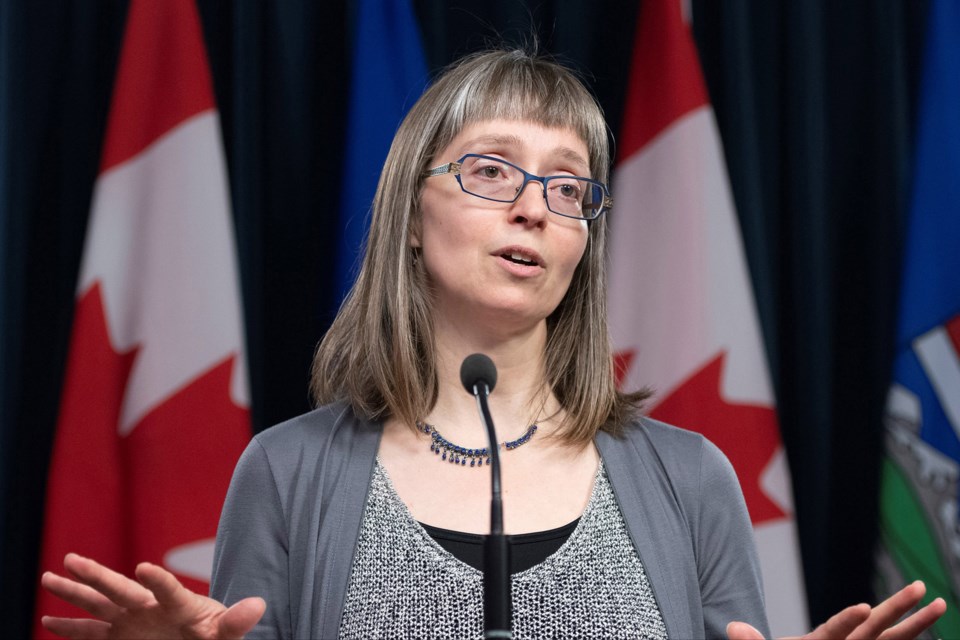Alberta Chief Medical Officer of Health Dr. Deena Hinshaw said Wednesday the growth of variant COVID-19 cases in the province means the province might have to look at introducing more public health measures.
Variants of concern have grown to 19 per cent of all active COVID-19 cases in Alberta, and the province registered another 202 variant cases in the past 24 hours, setting a provincial record.
On Wednesday, Hinshaw said there are some areas that are seeing almost as many variant cases as regular COVID-19 cases.
“I have been concerned from the beginning, but certainly what we are seeing right now is that tipping point in some locations where the variant cases are becoming close to equal with (the first strain of COVID-19), and that we could see in the future, that they become the dominant strain,” Hinshaw said.
The accelerating spread of the variant is a reminder that the only way to slow the spread is to limit opportunities the virus has to pass from one person to another. On Wednesday, the first two cases of community spread in Alberta of the P1 variant first found in Brazil were reported.
“Ultimately, again, this variant accelerating reminds us that we are not through this yet, we don't have enough vaccine on board. And the only current tool that we have, collectively, until we have the time to get enough vaccine on board our population, is each other's actions to keep our communities safe,” Hinshaw said.
The top doctor said with increased spread of the variant, the province may need to consider introducing additional public health measures like other jurisdictions have in Europe to help protect hospitals and intensive care units from getting overwhelmed.
“What we need to do in Alberta is up to all of us, and the next few weeks really are going to be a measure of how we are all collectively making choices prioritizing our community, preventing that spread within the current public health measures,” Hinshaw said.
“If spread escalates, if we're seeing the the spread in the transmission of our cases, in particularly variant cases continuing to rise, it may be necessary to bring in additional restrictions.”
In the past 24 hours, the province reported another 692 new cases of COVID-19, with 12,800 tests run for a positivity rate of 5.3 per cent.
There are active alerts or outbreaks in 363 schools, or 15 per cent of schools in the province. A total of 1,550 cases of COVID-19 have been diagnosed in schools since they reopened on Jan. 11.
Currently 285 people are in the hospital with COVID-19 and 53 of those in intensive care.
In the last 24 hours, two new deaths have been reported to Alberta Health.
Hinshaw said the rising case numbers aren’t due to one single sector but rather due to things like indoor social gatherings, outbreaks and people working while asymptomatic.
"With Step 3 delayed and cases rising, I know many Albertans are wondering where this increased spread is coming from," Hinshaw said.
"Unfortunately, there is no one single sector or activity that is driving the recent increase. We have seen indoor social gatherings, outbreaks, and people working while symptomatic all play a role, along with many other factors."
Hinshaw said the growth is from little moments in many different settings when Albertans come in close contact with each other and give the virus an opportunity to transmit.
"In many ways, (the public health measures) matter more than ever because we are getting so close to the end of this pandemic, thanks to vaccines," she said.
The province has delivered some 512,00 doses of the vaccine and another 418,000 people have signed up to get the shot.



